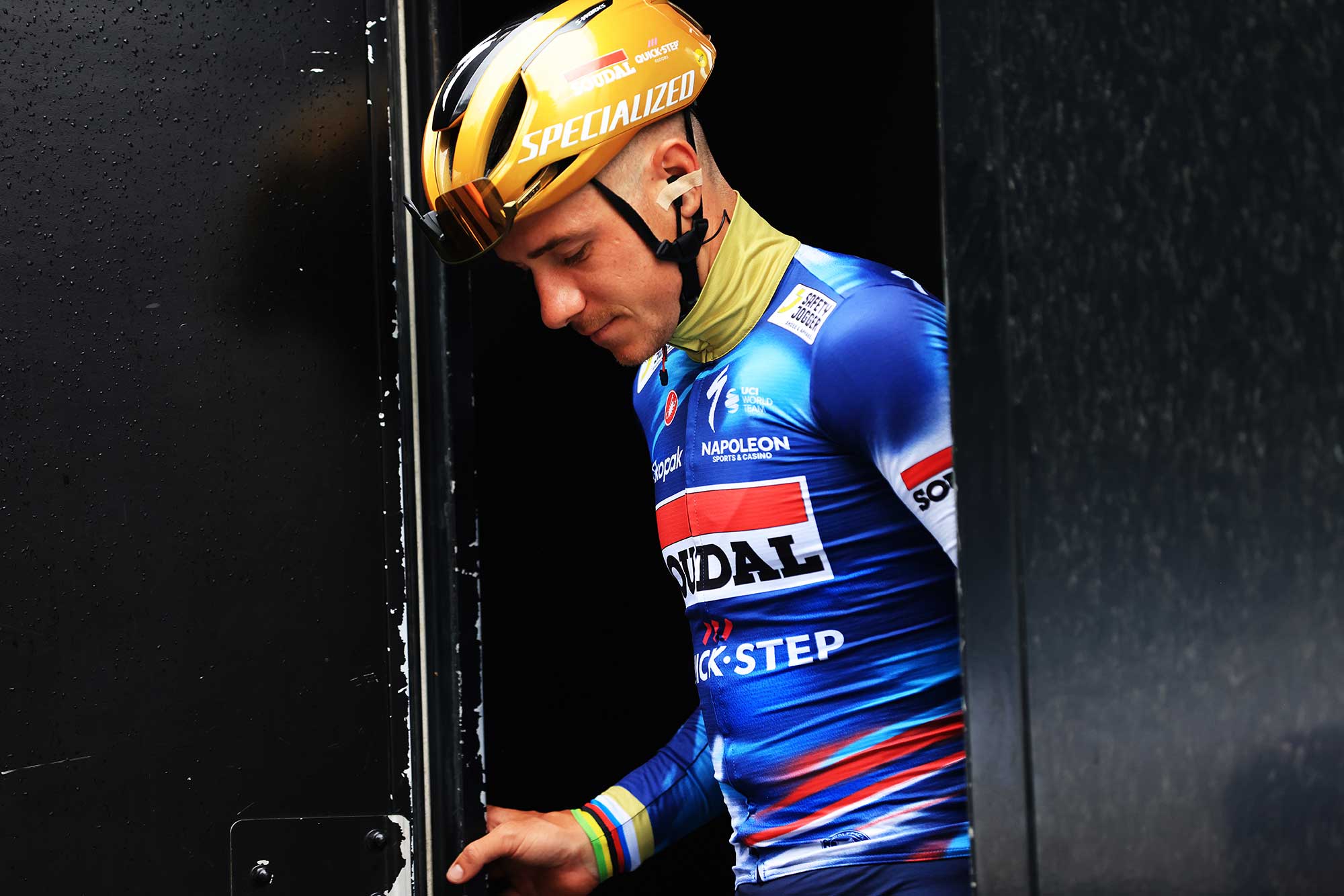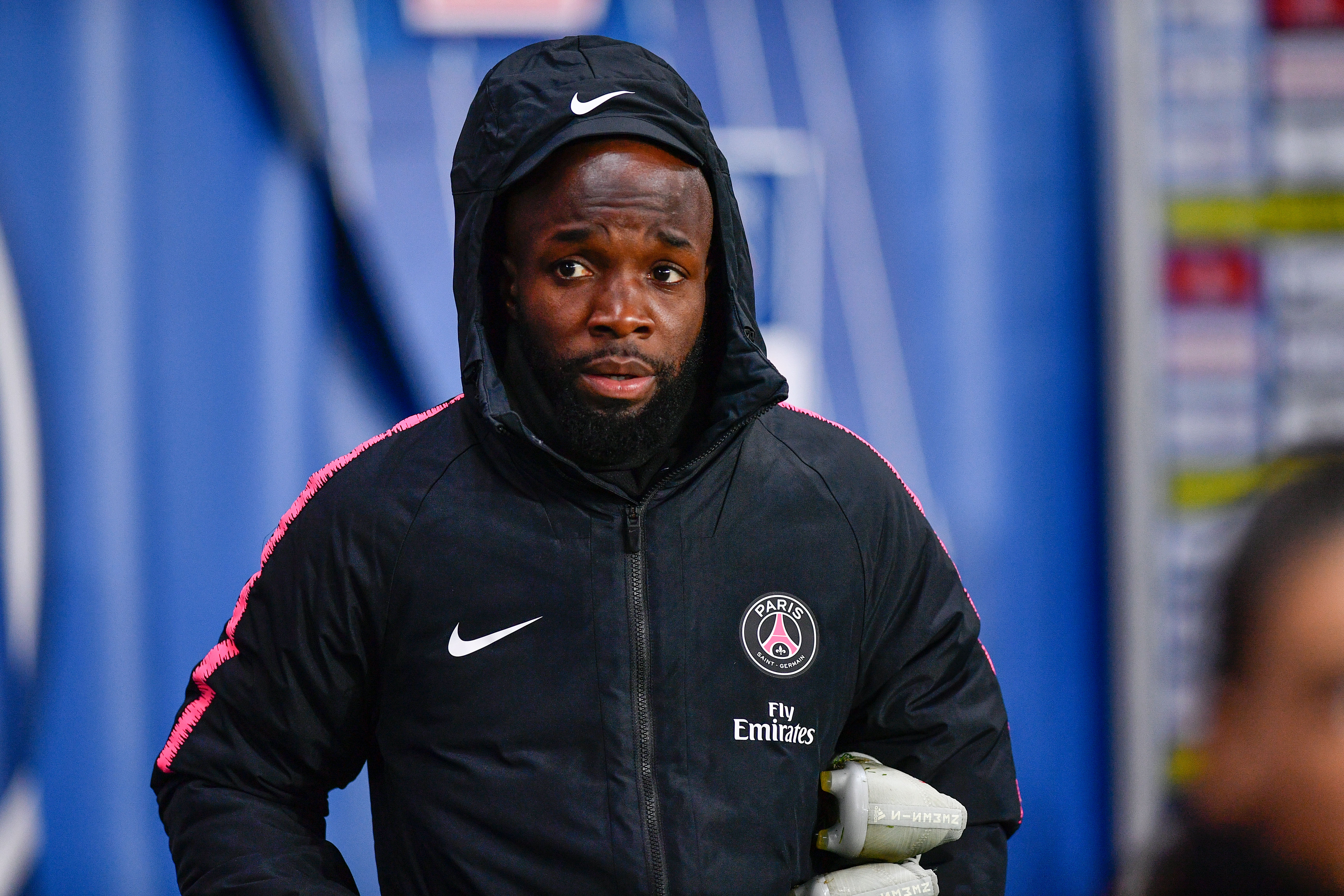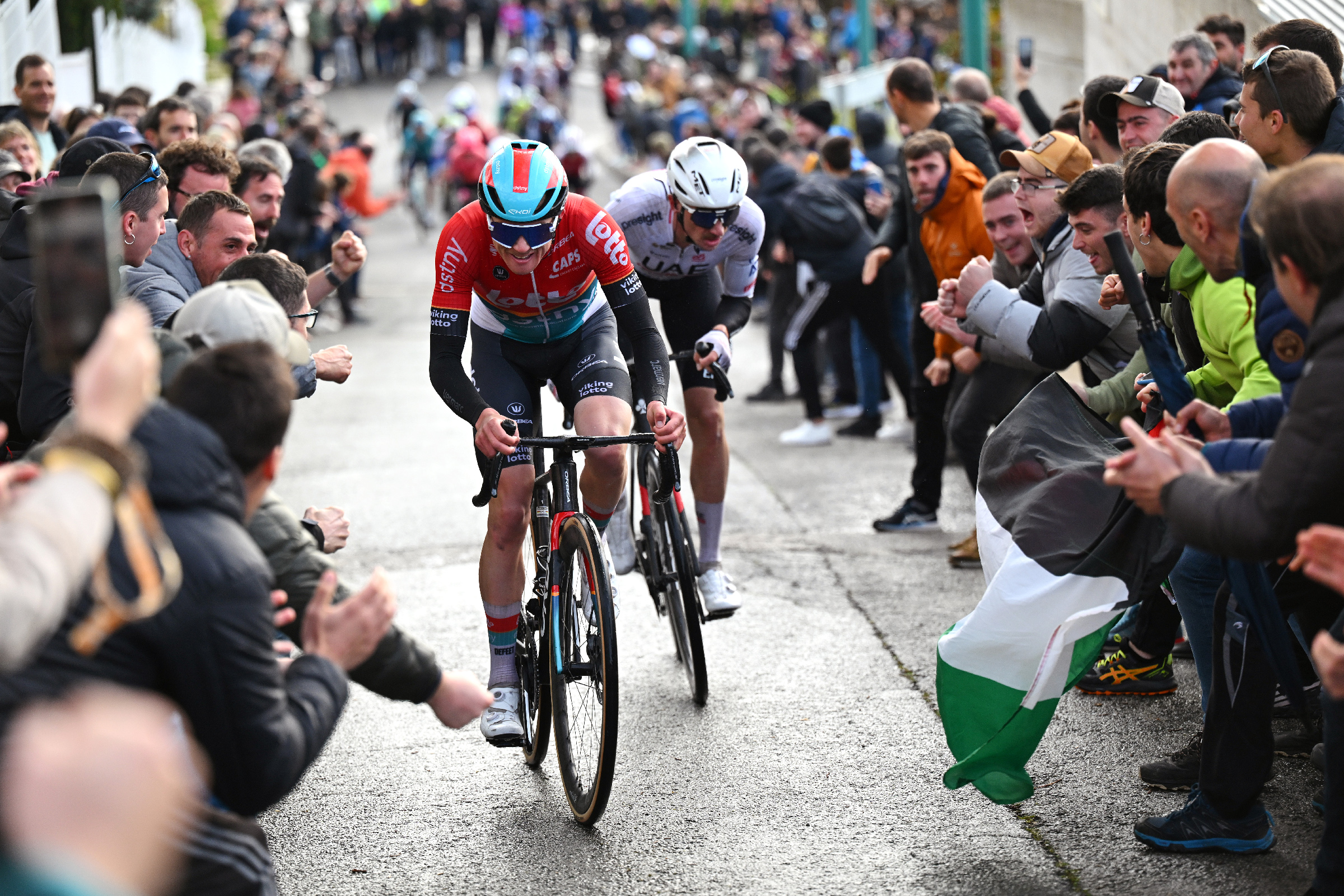Pro Cycling’s Contract Dilemma – Early exits, outdated transfer practices, and EU laws
The UCI should get a grip on contractual stability in men’s World Tour cycling – but its current rules are being overlooked and might be unlawful

The latest race content, interviews, features, reviews and expert buying guides, direct to your inbox!
You are now subscribed
Your newsletter sign-up was successful
In the height of summer, pro cyclists sweeping through the most stunning switchbacks of the most scenic mountains in the world foster an image of a dream rather than a job. Beyond the idyllic climes and days spent pedalling, pro cycling has also become exceptionally lucrative with many riders commanding eye-watering seven-figure salaries. But there are drawbacks beyond the souffrance and the pressure, and beneath the surface reveals an occupation with employment restrictions, complications and uncertainties just like any other.
Those pressures are currently mounting as the financial and political world around cyclists has evolved. Contracts have become longer, athletes have been signed younger, and the UCI has introduced new regulations and rules, all while the wider world of sports contracts has been picked apart by high-profile litigation. Remco Evenepoel and Juan Ayuso's high-profile and controversial early contract breaks are just the latest examples of this within pro cycling.
We'll return to this changing landscape in more detail later, but for now, let's consider why contract arrangements and contractual stability matter in cycling.
Longer, younger, more regulated
The transfer season can be a nerve-wracking time of the year for a large part of the peloton, especially for riders who are nearing the end of a contract. That's because a rider's contract typically lasts two years, and sometimes just twelve months, at which point they might be lucky enough to get a new contract, on the same team or elsewhere, if their results, form and fitness are strong enough.
In recent years, though, there has been a growing trend toward longer contracts to secure the world's best talents either at the height of their careers or at the very start of their exponential rise to form. Tadej Pogačar represents the former - recently securing over €50 million across a new six-year contract with UAE Team Emirates. Meanwhile, younger athletes, like Decathlon AG2R La Mondiale’s Paul Seixas, are entering into longer contracts at a younger age – in Seixas' case securing a three-year deal at the age of only 18 – which gives the rider the benefit of a longer run-road into the sport, and the team the ability to retain talent.
But this is sport, and in sport, contractual stability also has sporting consequences – and those consequences carry negatives and positives. For example, if riders could break their contract and change teams from one race to the next, it would completely undermine team competition. Equally, if a team can hoard talent simply because it has more money to offer, that will affect competitive dynamics and could reduce interest in the sport to everyone’s detriment.
That’s why EF Pro Cycling CEO Jonathan Vaughters told Cyclingnews: “You can purchase success, you can just buy success” amidst a rallying call for increased regulation on spending.
Wealthy teams and sponsors entering cycling have stoked debate across the sport. At times, the investment has been praised—and in a sport in which team revenues can be volatile, it’s easy to understand why—but the obvious friction is with the development of a system in which only a few teams can afford to win. Alongside simply out-funding their rivals, wealthy teams can do this by locking down talent for long periods, which can lead to a significant competitive advantage.

While pro cycling is a sport, a culture and a world of its own, it's also a market governed by the principle of fair competition.
So it’s little surprise that the UCI, like most sports governing bodies, has taken a regulatory interest in contractual stability and team transfers. In the summer of 2024, the UCI built on this by introducing an expanded set of rules to govern transfers and registration for UCI WorldTeams.
The governing body told Cyclingnews that it “acknowledges the general trends and increased competition for contracting riders and the challenges this presents in balancing contractual stability, riders’ and/or teams’ autonomy and sporting integrity.”
The new rules include two defined registration and transfer periods per year, restrictions on certain contract terminations, restrictions on team transfers during contracts, and a prohibition on teams approaching in-contract riders at other teams.
The UCI has cast substantial focus on “unlawful termination”. In the world of normal employment, our minds may jump to individuals being dismissed by their employer without proper process. Similarly, the UCI’s rules do contain protections for riders from abuse by their employers, for example, if a team were to repeatedly refuse to permit a rider to enter competitions, it lost its licence to participate in UCI events, or a sponsorship deal collapsed putting the team’s future in doubt.
However, unlike a typical employment relationship, the UCI rules contain a number of provisions that regulate how a rider may leave their team. An “unlawful termination” would include situations in which a rider tries to escape their contract before its full term has elapsed unless there is a specific contractual right to do so. This has particular consequences for riders who enter into longer contracts. The UCI rules have been designed to ensure that riders honour those contracts unless they have negotiated a specific right for the rider to leave earlier.
In the case of Remco Evenepoel, Soudal-QuickStep CEO Jurgen Foré admitted the team didn't want to get into a drawn-out legal case when it became clear the double Olympic champion would not renew his contract, so received "a fair amount" to allow him to break his contract a year early and join Red Bull-Bora-Hansgrohe.
The Belgian WorldTour squad would have received severance pay to allow Evenepoel to move on before the conclusion of his contract, rumoured to be around €2 million, although Foré would not discuss exact figures during an interview with Sporza.
Meanwhile, UAE Team Emirates-XRG and Juan Ayuso mutually agreed to terminate his contract, due to run through 2028, early after the rider-team relationship had broken down beyond repair, and Ayuso described the team situation as "like a dictatorship."
But there's another problem… These UCI rules as currently drafted could prove unlawful under European Union law, and if they are – for riders based in or with competitive interests in Europe, which, given the international nature of the peloton and the cluster of riders and teams being based in the countries within the bloc, is likely to be the case for many – they’re unenforceable.
The UCI - controlling the contracts

Dramatic as that may sound, this is an issue already faced by other sporting bodies and should already be on the UCI’s radar.
Not least because of a recent decision of the Court of Justice of the European Union, following a challenge brought by the footballer Lassana Diarra, found a significant part of FIFA’s transfer regulations to be unlawful.
Similarly to the UCI regime, FIFA’s rules contained prohibitions on the early termination of contracts by players without their club’s agreement. And like the UCI rules, there could be sanctions on the player and their new club if a tribunal found the player to have left their old team without a contractual right to do so, or the agreement of the club they wanted to leave.
Often, agreement to let a player leave their contract early came in the form of a transfer, sometimes with eye-watering fees attached. If an agreement could not be reached, the player might be stuck, forced to see out their existing contract.
In the Diarra case, the court found FIFA’s rules to have been designed in a way that was liable to both breach competition law and restrict the free movement of workers within the European Union. The rules gave too much power to clubs and reduced players’ career mobility. Because of that court decision, those rules can’t be enforced as they were designed.
This is of major consequence for football. FIFA has moved quickly to consult with stakeholders on what should happen next. However, the issues identified are not restricted to football. The principles set down by the court are also capable of being read across to other sports in which similar restrictions have been constructed. Given the changes recently made by the UCI, that includes road cycling.
With any legal matters, the devil is always in the details. But the contrasting positions of FIFA and the UCI should raise eyebrows. Just as FIFA is having to reorganise its transfer rules because of problematic rules that could lead to sporting sanctions for players who leave their deals early, the UCI introduces rules that could lead to sporting sanctions if riders leave their deals early.

The court did say in the Diarra case that a lawful set of rules to facilitate contractual stability was possible, so it’s not that the UCI faces an impossible task. But when you dig into the detail, there are some potentially problematic restrictions in the UCI’s current regulatory regime.
Some of the new rules lack transparency. One change allows a rider to register with a new team if they have unilaterally terminated their previous contract (meaning they have not come to an agreement with their old team on the contract coming to a premature end). However, this is conditioned on the President of the UCI Arbitral board’s approval.
The rules are vague on what exactly the President of the Arbitral board should consider, save to say permission should only be refused “if a prima facie analysis shows that the termination was clearly unlawful”, without specification as to which laws are to be considered, whether the rider will be able to represent their case, or otherwise.
This is problematic as it would be very hard for riders to consider offers from other teams, or for teams to make those offers. There would be too much uncertainty as to what consequences they each might face. The law generally will not allow rules that are so opaque that they could reduce competition for riders’ talents.
On the face of it, the rules may appear to be designed not to unduly impede riders’ freedom, but there is a lack of procedural precision and detailed points the UCI would consider – a projection of how the UCI would interpret these rules in real life.
While the rules don’t outright prohibit mid-contract moves, teams and riders will put themselves at risk of sanctions like bans on registering riders (for teams) or bans from competing (for riders). If they can’t be sure about what will happen, they are less likely to move.
Generally, rules which reduce competition are hard to justify legally. Harder still when the potential consequences are not transparent. The UCI’s rules don’t allow riders to make a proper assessment of the risks of leaving a contract early. It is left hanging over them that both rider and their new team might get published for a move.
That same rule goes on to say that an early contract termination won’t be “clearly unlawful” on first examination if the rider does not move for more money.
The insinuation here is that if a rider receives an offer to perform their job for money with another employer and decides that they want to end their current employment early in order to pursue that opportunity, that it might not meet approval. So unless a rider has a contractual right to move for a better offer, as was reported to be the case when Lorena Wiebes moved from Team DSM to SD Worx in 2023, they’re at risk of breaching the rules if they move for more money.
This has the air of what is referred to in competition law as a restriction ‘by object'. This is the most serious restriction of competition - 'by object' infringements include activities such as price fixing or predatory pricing. These restrictions are usually not capable of justification because they specifically intend to restrict competition. While the UCI rules do not explicitly say riders can’t leave their existing contracts for new, more lucrative ones, it is certainly implied to be a factor, and that one that would be very hard for the UCI to sustain. In an environment where longer contracts are becoming more common, this is particularly important.
The UCI's legal challenges
There are other issues. Another rule holds that a team wanting to engage an in-contract rider needs to inform the current team first. The rider can only move if the two teams agree to a transfer.
There aren’t many professions in which this sort of protective conduct would be tolerated: Neither accountants, nor lawyers, nor teachers, nor bricklayers need the permission of their company, law firm, school, or site manager if someone offers them a better job. Yet in sport, it’s common practice.

In some cases, that’s legally justifiable, recognising the special features of sport and the interest of maintaining the integrity of competitions. It is not always legal though, and in the Diarra case, the particular system governed by FIFA was found to be unlawful because, among other things, that sort of arrangement amounted to a ‘no poach’ arrangement between competitors. There is a real risk that the UCI counterpart could be construed as doing something similar.
If a team doesn’t get the rider’s current employer’s blessing before a mid-contract switch, the UCI can impose sanctions on both the rider and the new team, including suspensions (from competition for the rider, or from registering riders for the team) and fines. This doesn’t mean situations like the public divorce of Cian Uijtdebroeks and BORA–hansgrohe won’t happen again, but in the future, riders who want to force a move through will put themselves at risk of punishment.
This too could be a legal issue. The court in the Diarra case did not completely prohibit sporting sanctions for breaches of contract by players. But sanctions must pursue a legitimate objective in the public interest, and the overall framework must be transparent, objective, non-discriminatory and proportionate.
In a statement to Cyclingnews, the UCI denied that its rules were legally at risk in the same way as FIFA’s were, saying “Whilst we recognise the decision’s relevance for all sporting regulations, a fundamental difference lies in the manner in which the UCI Regulations provide clear guidance on the circumstances under which a rider’s new team can avoid being sanctioned, thereby striking a balance between contractual stability - historically linked with cycling - and free movement, as well as promoting best practices among teams.”
However, it is hard to hold the two sets of rules up against one another and spot the meaningful transparency created by the UCI regime in comparison to its FIFA counterpart, nor the obvious need for sporting sanctions from a legal perspective.
Sanctions must sustain the integrity of the sport in a way that the ordinary legal principles of contractual breach of an employment contract would not. A rider who leaves their contract mid-way through might still suffer legal consequences for breaching their contract––but that’s a matter between employer and employee; it does not need to include sporting sanctions unless those sanctions protect something essential to the sport. In the case of longer contracts, it’s not clear how it would.
High stakes for cycling

Not all parts of the UCI transfer regime are so knotty. The implementation of transfer windows is likely to fulfil its purpose and has met approval in EU courts in other sports (there was a case involving the basketball player Jyri Lehtonen in which the imposition of transfer windows was challenged as being an unlawful restriction on player mobility, but this was not upheld by the court). More restrictive terms are also capable of legal justification. Rules that are agreed as a result of collective bargaining and which improve employment conditions are generally immune to challenge (known as the ‘Albany exception’ after a case of that name).
Also to its benefit and advantage is that the UCI, unlike some sports, has riders’ representatives in its governance framework. As trends in rider contracts evolve, it will be critical for the UCI to properly enfranchise riders and their representatives in the design of the rules.
The UCI acknowledges this friction, telling Cyclingnews, “The positions among stakeholders on how to regulate this topic outline divergences: some advocate for strict rules with deterrent sanctions to uphold stability and integrity, while others favour an unregulated transfer market to enhance rider and/or team autonomy.”
Ultimately, any suite of transfer restrictions that do not adequately prioritise riders’ interests will be at risk of legal challenge. And if the rules can be defeated by legal challenge, their existence is a footnote for riders with greater economic power. They risk limiting the careers only of those without the financial clout to argue their case.
In a world where less experienced and less well-remunerated riders enter into longer contracts, a real imbalance could be created and competition would be stifled. The sport, and its fans, would suffer the consequences.
If you subscribe to Cyclingnews, you should sign up for our new subscriber-only newsletter. From exclusive interviews and tech galleries to race analysis and in-depth features, the Musette means you'll never miss out on member-exclusive content. Sign up now
Christopher Flanagan is associate editor of the International Sports Law Journal, and works as Head of Legal for Future Plc. He is currently working on a PhD by publication in the field of sports law.
You must confirm your public display name before commenting
Please logout and then login again, you will then be prompted to enter your display name.
